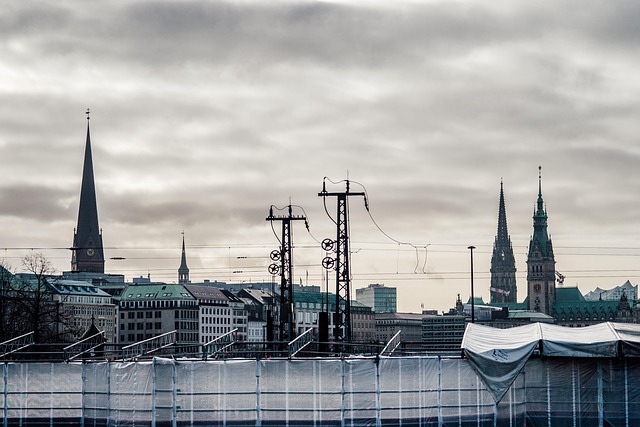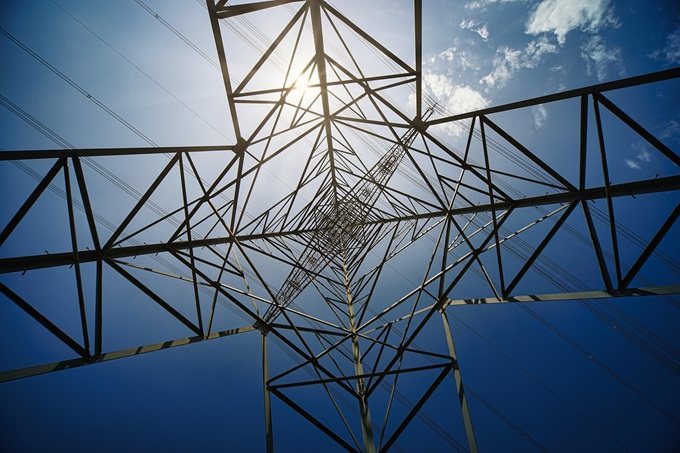BLOG
Tidal NRG and Innov8 Gases work on helium cooling for data centers
Data center and energy firm Tidal NRG wants to build a helium-based cooling system for AI racks. It has signed a deal with Innov8 Gases, a gas specialist, which will see the two companies co-develop next-generation cooling technologies based on helium.
California-based Tidal has also entered into a long-term helium offtake agreement and will make a minority equity investment in Innov8 Gases.
According to the two companies, Helium's high thermal conductivity, low viscosity, and inert properties offer major performance advantages over water or air, delivering greater energy efficiency and long-term sustainability.
Helium is not widely used as a coolant in data centers, though hard drive operators have been injecting it into their products, instead of air, for the last decade to help improve HDD storage capacity and efficiency.
Tidal NRG is a new venture aiming to build hyperscale data centers for AI and HPC workloads. Founded by Swensen, an entrepreneur with a background in fintech, in June it announced a partnership with another firm, Texas Energy Group, with the aim of co-developing data centers in Texas.

Samsung approves Chemours immersion cooling fluid
Chemours has revealed that its Opteon two-phase immersion cooling fluid has been qualified by Samsung Electronics, following tests by the Korean computer manufacturer. According to Chemours, Samsung successfully qualified the fluid for use with its fourth generation solid state drive (SSD) – a high-performance storage device.
Performance tests were carried out in collaboration with US liquid cooling tank manufacturer Liquid Stack, and PKI Corporation, a Korean leader in semi-conductors and data centres.
Samsung and PKI are said to have established a robust testing and qualification process to support current and future generation qualifications. The performance testing was carried out using a commercial scale 48U immersion cooling tank, typically used in data centres. The equipment met all compatibility targets, with no sign of degradation, Chemours reports.
The Opteon fluid is said to be the first two-phase immersion cooling fluid approved by Samsung; testing for subsequent generations will begin in the months ahead.
Although no details of the cooling fluid in the Samsung trial have been mentioned by Chemours, the US chemical company has previously been working with an HFO-based two-phase immersion cooling fluid known as Opteon 2P50. This has a GWP of 10 under AR6 and boils at 49℃. It is said to have a PUE approaching 1.
The company has also not officially revealed the identity of the HFO fluid, but Chemours does hold patents on the application of the HFOs 153-10mczz and 153-10mzzy as immersion cooling fluids.
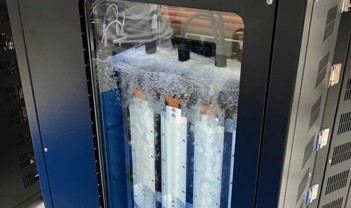
GPT-5 could require significantly more energy per ChatGPT response compared to prior versions
OpenAI’s newly released GPT-5 may use significantly more electricity per response than earlier versions of ChatGPT, according to academic researchers benchmarking AI energy consumption. First reported by the Guardian, it was revealed that tests undertaken by the University of Rhode Island’s AI lab showed that a medium-length GPT-5 output of around 1,000 tokens can require, on average, more than 18 watt-hours of electricity, with some responses reaching 40 watt-hours.
Energy researchers cited in the Guardian report noted that GPT-5 is likely much larger than GPT-4, which itself was believed to be ten times the size of GPT-3. Larger models have consistently shown higher resource needs during both training and inference.
A study released by French AI firm Mistral this summer found a strong correlation between model size and energy consumption, estimating that a model ten times larger will have an environmental footprint roughly an order of magnitude greater for the same output.
While OpenAI has not disclosed GPT-5’s parameter count or detailed energy usage, experts interviewed by the Guardian, which included academics from the University of Illinois, UC Riverside, and the University of Rhode Island, expect its energy demand to be “orders of magnitude” greater than GPT-3.
Altman may now have to revise those figures due to the apparent energy demand of OpenAI’s latest model.
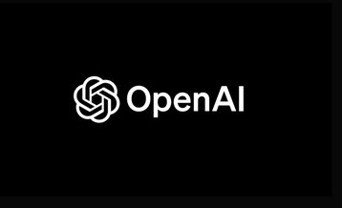
Etix completes core & shell of 28MW data center in Bangkok, Thailand
Data center firm Etix Everywhere has completed the core and shell of a new facility in Bangkok, Thailand.
The company this week announced it has officially delivered the core and shell of Etix BKK#2.
Located adjacent to the 5MW ETIX BKK#1, the building totals 16,000 sqm (172,223 sq ft) and will provide 23MW IT capacity. The company said the new building can offer densities up to 150kW and support both liquid and air cooling.
Etix acquired a 67 percent interest in Genesis Data Center, which operated a facility in the Bang Chalong area of Bangkok, for around AU$15.2 million (US$10.8m) in early 2022.
Genesis was launched in 2018 by Interlink, local IT firm Advanced Information Tech, and Thai industrial property development company WHA Corp. Interlink continues to own 33 percent of the facility.
After Vantage acquired most of Etix’s European hyperscale footprint, ASX-listed Global Data Centre Group (GDCG) bought the remainder of Etix in 2020. European private investment firm Eurazo invested $46.8 million into Etix last year, and French investment firm Infranity bought the remaining stake from GDCG earlier this year.

First phase of CtrlS’ Kolkata data center campus operational
The first phase of CtrlS’ Kolkata data center campus in India is operational. Located in the New Town area of Kolkata, the first phase of the Kolkata DC-1 campus will span 44,000 sq ft (4,087 sqm) and provide 16MW of capacity across 1,137 racks. The campus will offer 60MW at full buildout.
This will be CtrlS’ first data center campus in the eastern Indian city. The company announced its plans to build the campus in June 2024 and said at the time that it would invest Rs 2,200 crore ($264m) to build the entire campus.
CtrlS announced on LinkedIn that the facility would be the “region’s first Rated-4 facility,” offer a PUE of 1.4, and provide support for advanced cooling and high-density racks.
At the end of 2023, the company announced plans to invest $2 billion over the next six years, expanding across Asia and the Middle East. To date, the company has more than 250MW of IT capacity and is also planning a 150MW campus in Thailand.
India’s largest data center markets are in New Delhi and Mumbai, but Kolkata is home to large players including NTT, Nxtra, and ST Telemedia Global Data Centres.
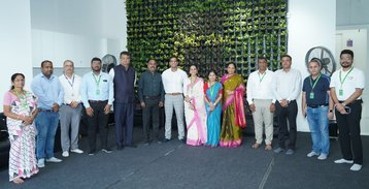
Apollo Funds to acquire thermal management solutions business Kelvion
Apollo-managed funds plan to acquire a majority stake in Kelvion, a heat exchange and cooling solutions provider. German-headquartered Kelvion develops technology for data centers, hydrogen production, carbon capture, heat pumps, marine, HVAC, refrigeration, and the food and beverage industry.
Subject to standard approvals, the deal is expected to close between Q4 2025 and Q1 2026. Previous owner Triton will maintain a minority stake in Kelvion.
Kelvion's data center products include both air and liquid cooling solutions.
Waleed Elgohary, Apollo partner, added: “Kelvion has established itself as a premier provider of energy-efficient solutions, with a global footprint and leading customer base. The company is well-positioned to meet the demand of several very large secular tailwinds, including AI & cloud revolution, energy transition, and reindustrialization."
Apollo Global has a number of data center investments, including in operator TierPoint and chipmaker Wolfspeed. This month, Apollo announced plans to acquire Stream Data Centers and is also in talks with Meta to help fund its data centers.
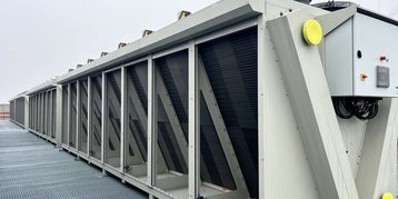
DayOne targets 128MW data center campus in Finland
APAC data center firm DayOne is expanding into Europe with a project in Finland. The company this week announced plans to develop a campus in Lahti, some 100km northeast of Helsinki.
The €1.2 billion ($1.4bn) project will be located in a former industrial site in Kiveriö. At full build-out, the project could total 128MW IT load.
Construction will commence with site demolition in Q3 2025, and operations at the first 50MW building are scheduled to be ready for service in 2027.
The site will use free-cooling, and the company is exploring potential heat reuse opportunities.
Elsewhere in Finland, DayOne also said it has jointly invested in Hyperco’s Kouvola data center. Damac-owned Hyperco is developing a facility there set to serve TikTok owner ByteDance.

EdgeMode partners with Vertical Data to explore development of 20MW AI data center in Marviken, Sweden
EdgeMode, a US-based data center developer, has partnered with AI infrastructure firm Vertical Data to market and deliver a 20MW AI data center in Sweden.
The partners signed a non-binding Memorandum of Understanding (MoU) to develop the data center in Marviken, Sweden.
The project aims to combine EdgeMode’s Marviken Smart Energy Cluster, which is tied to a 95MW renewable Power Purchase Agreement (PPA), immersion cooling of up to 180kW per rack, and district heating integration, with Vertical Data’s expertise in AI cluster design, GPU and server procurement, and financing through its GPUFinancing.com platform.
EdgeMode formally acquired the cluster from Synthesis Analytics Production in June in a $1.75 million deal. The deal saw EdgeMode acquire control of the PPA, a long-term lease on an in-development 20MW high-performance computing data center, and freehold ownership of approximately 20,000 square meters (215,280 sq ft) of adjacent land.
The initial 20MW is slated to go live by the end of this quarter, with the next 75MW phase already in advanced planning. According to EdgeMode, the facility could expand to 300MW within the next five years. The deal was first announced last year.

OData launches fourth data center in Querétaro, Mexico
Latin American data center firm OData has launched the first phase of a new facility in Mexico. The Aligned-owned company this week announced the launch of its new QR04 data center, located near San Miguel de Allende in the Querétaro region.
The new facility completes a network of four interconnected hyperscale data centers in Mexico. Offering a total IT capacity of 24MW at full build-out, the first 12MW phase is operational. OData said the data center is already serving hyperscale customers.
The facility uses the Aligned-developed Delta Cube (Delta³) air-cooling solution, offering densities of up to 50kW per rack with air cooling alone. QR04 also features a closed-loop water system for IT environment cooling.
The company's QR01 campus first went live in 2022; its QR02 campus went live earlier last year. The first phase of QR03 launched in May this year. The company broke ground on QR04 in July 2024.
OData first announced it would start using Aligned’s Delta³ cooling tech in its data centers last year. US data center firm Netrality is also a user of Aligned’s Delta³ system at its 1301 Fannin Street facility in Houston, Texas. Aligned launched a liquid cooling system in January 2024 called DeltaFlow~ that can be integrated with Delta³.
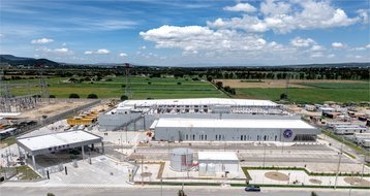
ST Telemedia considers sale of stake in Chinese data center firm GDS
Singaporean telecoms investor ST Telemedia (STT) is reportedly considering selling its holding in Chinese data center operator GDS Holdings.
Citing people familiar with the situation, Bloomberg reports the Temasek-backed STT is sounding out interest from potential buyers for the entire 34 percent stake in GDS.
ST Telemedia declined to comment to the publication. GDS didn’t respond to requests for comment.
STT, which is owned by Singapore’s state-owned sovereign wealth fund Temasek Holdings, develops and operates data centers through its STT GDC division.
The company owns stakes in Chinese operator GDS and UK-based firm Virtus.
KKR is reportedly looking at acquiring STT GDC for around $5 billion. KKR already owns a 14.1 percent stake in STT GDC, after it partnered with Singtel to invest S$1.75bn (US$1.4bn) in the company last year.
The Chinese operator recently spun out its international division into a new company called DayOne. The company has secured outside investment from the likes of SoftBank Vision Fund, Citadel CEO Kenneth Griffin, Coatue Management, and Baupost Group.
GDS retains a non-controlling 35.6 percent equity interest in DayOne. DayOne’s portfolio currently comprises approximately 480MW of data center capacity in service and under construction, and an additional 590MW held for future development across sites in Hong Kong, Singapore, Malaysia (Johor), Indonesia (Batam), and Japan (Tokyo). The company recently broke ground on a site in Thailand.
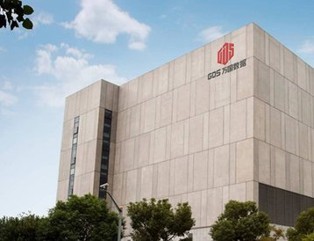
Brookfield: Next decade will see 75GW of AI data centers built, total AI infrastructure spend to pass $7 trillion
Investment giant Brookfield Asset Management predicts continued significant growth in the data center market with “little risk of overbuilding” thanks to the AI boom.
The company, which has launched a dedicated AI infrastructure strategy, published a white paper that detailed its rosy forecasts for the sector. The company owns, or has a major stake in, Compass, Centersquare, Data4, Ascenty, Digtal Connexion, DCI, and others, alongside significant energy investments.
Citing its own internal research, Brookfield said that total spending on AI-related infrastructure will exceed $7 trillion in the next 10 years. Earlier this year, McKinsey estimated $7tn could be spent just by the end of the decade.
Brookfield believes that $4tn will be spent on chips (including fabs and supply chains) and $2tn on AI data centers. $500bn will go to power & transmission, and another $500bn will go to broader tech such as dedicated fiber connectivity, cooling solutions, and robotics manufacturing.
By the end of the year, the company predicts AI-focused data centers (known by them as AI factories) will account for about 15GW of power capacity, up from ~7GW at the end of 2024.
Over the next decade, it expects a further ~75GW. “This would bring total AI data center capacity to roughly 82GW by 2034 - more than a tenfold increase in a decade,” the paper states.
The company predicts that the installed base of GPUs will grow about sevenfold, from ~7 million in 2024 to 45 million by 2034.
Those chips will increasingly be used for inference, with around 75 percent of future AI compute demand to come from inference by 2030.

Leave A Reply
LOGO
This stunning beach house property is a true oasis, nestled in a serene coastal community with direct access to the beach.
Opening Hours
Monday - Friday : 9AM to 5PM
Sunday: Closed
Closed during holidays
Contact
+18888888888
hezuo@eyingbao.com123 West Street, Melbourne Victoria 3000 Australia


